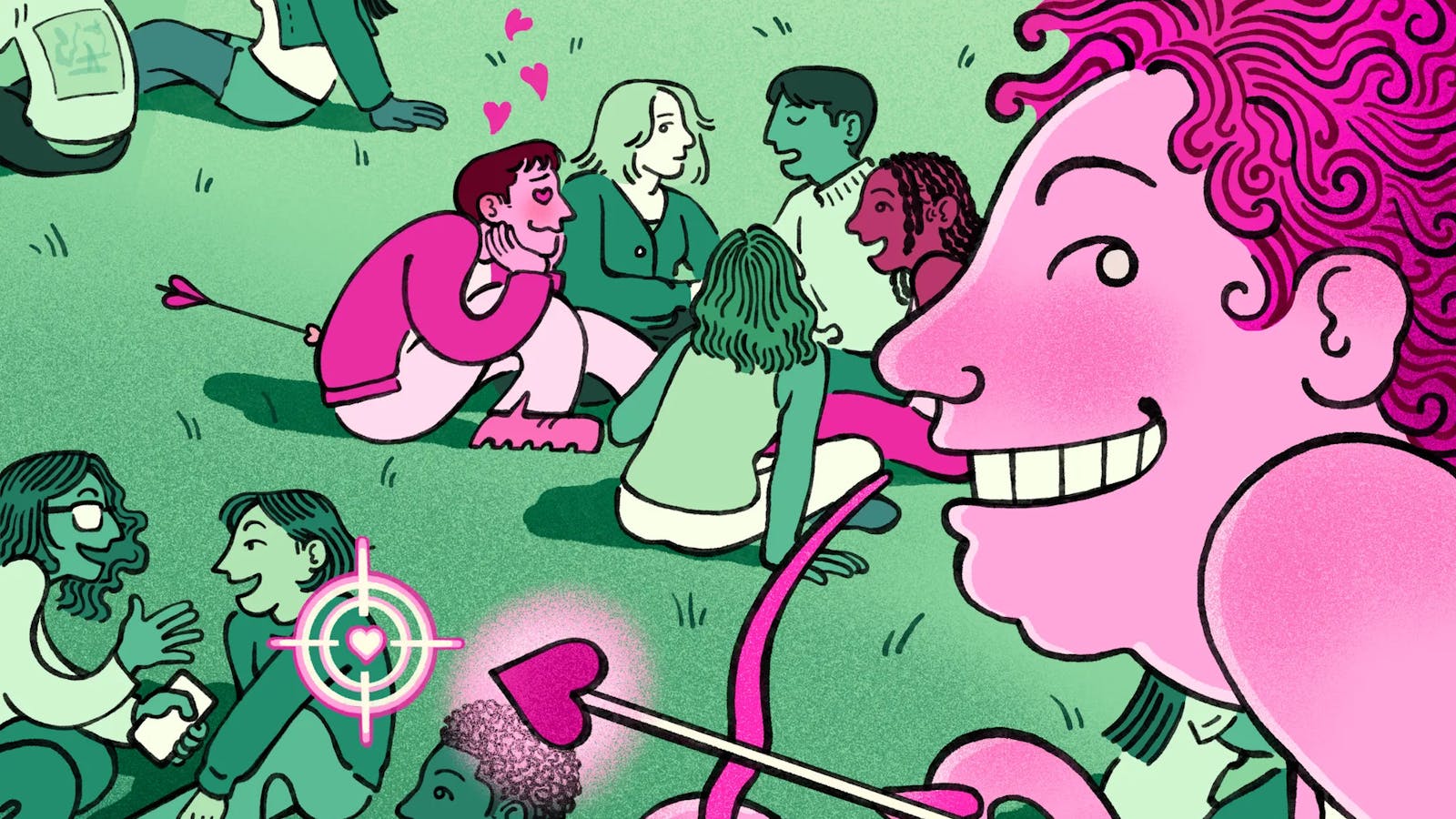College friendships are supposed to be easy, but they don’t always stay that way. There’s no situation as awkward and nerve-racking as when you start to wonder if you like your friend as more than just a friend.
There’s not necessarily one moment when you realize it. It’s often a slow shift. You start crafting texts more carefully, mentally replaying small moments and feeling flutters that shouldn’t be there. “I just love hanging out with you” starts feeling more like a confession than a compliment.
College makes this kind of confusion practically inevitable. We live, study, and eat in the same 10-block radius, surrounded by people who feel closer to us than family. We share dorm rooms, toothpaste, therapy updates, playlists, and secrets. We casually say “love you” to our friends and even flirt without realizing it.
The same intimacy that makes college friendships so meaningful can also make them messy. The line between platonic and romantic feels incredibly blurry. And so, naturally, it nags at you. You want to know if you should say something, if this is one of those “life’s too short” moments that people online always encourage strangers to act on.
But choosing the bold move can feel like detonating a bomb, jeopardizing your entire friendship and risking the organic dynamic that you love—even if the feelings are reciprocated. Most of all, you risk rejection and possible humiliation.
And yet, saying nothing doesn’t feel safe either. You end up performing friendship: casual smiles, careful hugs, yet your heart pounds at every accidental brush of the knee. You’re fine with “just friends,” but your stomach drops every time they mention someone new in their life.
So, what should you do?
### Dismantling the Myth: Friendship is Not Lesser Love
The first myth to dismantle is that friendship is the lesser form of love. Romantic relationships are often treated as the pinnacle of intimacy, but think about it: your closest friendships have probably lasted longer than most romantic relationships.
Your friends have seen you at your lowest, ugliest, and most unflattering moments. They’ve witnessed you cry on the kitchen floor, stood in line with you at the dining hall for the fifth time in the same week, and still answered your FaceTime at midnight. That’s not second-best love; that’s the foundation of what it means to love and be loved back.
Sometimes when we crush on a friend, what we’re really developing is a deeper appreciation for someone’s closeness—mistaking that warmth for romantic potential. That’s the complexity of human connection: how affection, gratitude, and desire can overlap until it’s hard to tell them apart.
### Pause and Reflect Before Acting
It’s worth pausing to untangle what kind of love you’re actually feeling before you act on it. Before you confess, ask yourself:
– Do I actually want to date them?
– Or do I just want to be loved by someone who already knows me so well?
If it’s the second one, maybe the answer isn’t a confession. Maybe it’s gratitude. Maybe it’s saying, “You mean a lot to me,” and letting that be enough.
### When You Know It’s Real
But let’s say you’ve decided: This is real. You’ve tried to ignore it, suppress it, joke it away, and it’s not working. In that case, honesty is kinder than emotional gymnastics.
You don’t have to write a love letter or perform a grand gesture. A simple, “I’ve been feeling something more than friendship, and I just wanted to tell you,” is more than enough.
The key is to speak without expectation. You’re offering information, not an ultimatum. “This is how I feel,” instead of “Please feel it back.”
### Respecting Uncertainty
College relationships—romantic or otherwise—work best when they’re built on mutual respect for uncertainty. People are still figuring out who they are, meaning feelings won’t always align. That has to be okay.
If they don’t feel the same way, it will sting. You’ll have to sit with that weird ache when you see them around. But the truth is, most friendships survive that awkwardness. It just takes time and honesty to adjust to new boundaries.
If the friendship is real, it will adapt.
### The Elasticity of Love
Liking a friend doesn’t need to ruin your friendship. Sometimes it changes the relationship, sometimes it deepens it, and sometimes it fades.
But it always teaches you something about the elasticity of love. Love can stretch and reshape itself to fit new boundaries without necessarily breaking. It bends to circumstance, to timing, to what two people can offer each other.
Sometimes it softens into friendship, sometimes it sharpens into longing, sometimes it simply settles into quiet admiration.
Try to focus on what it feels like to love someone—regardless of whether it is platonic or romantic—and to appreciate the courage it takes to name that love, even if it’s unreciprocated.
### Final Thoughts
So yes, liking your friend is messy. But so is growing up. So is love.
If you’re wondering whether to tell them, maybe you already know the answer. The hardest part isn’t saying it—it’s letting yourself recognize it.
https://www.browndailyherald.com/article/2025/11/gupta-25-md-29-more-than-just-friends
